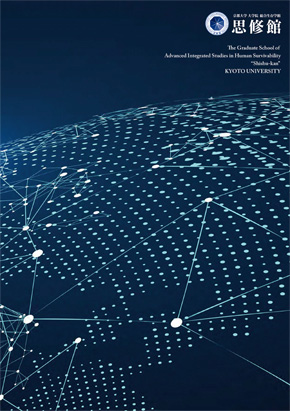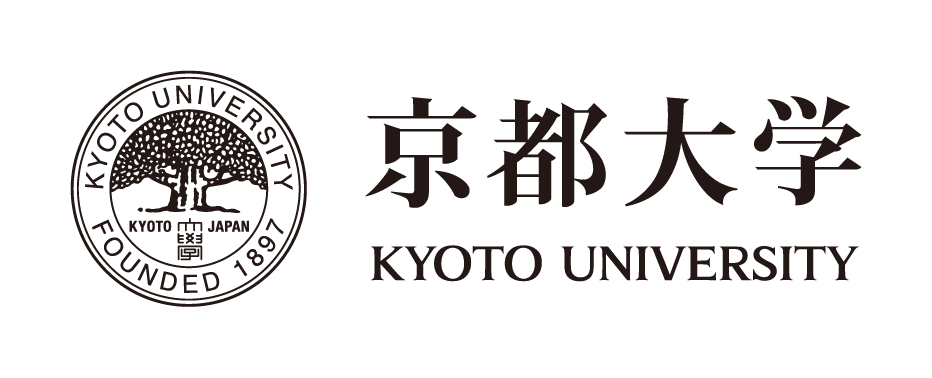Distinctive Characteristics
Last update: 2023-11-22
Tailor-made Curriculum
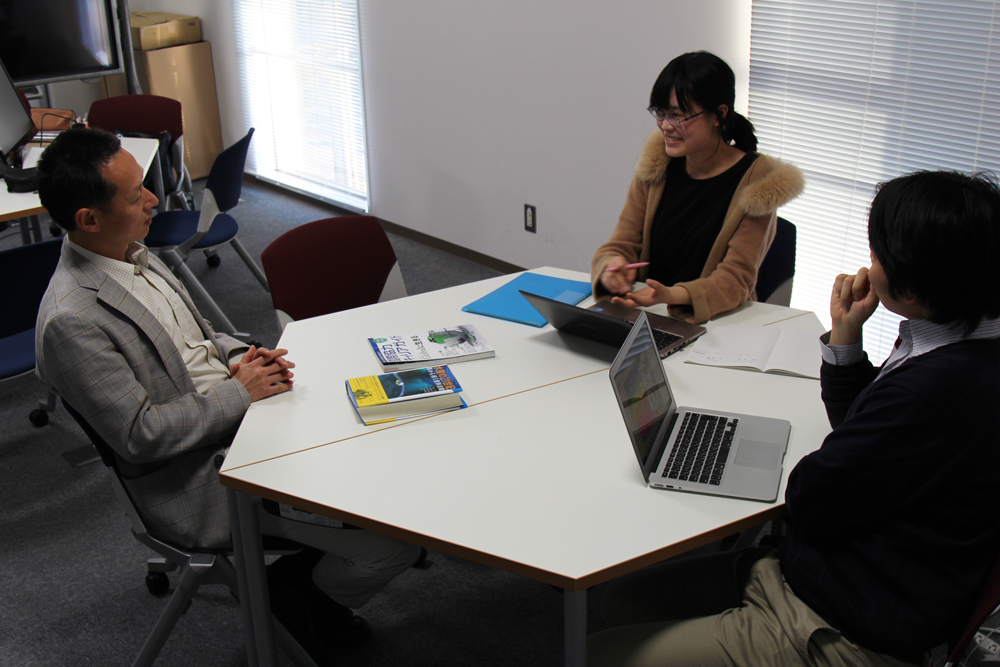
As the student’s academic background and the required expertise for their research differ, the curriculum is designed according to each student’s interests and research subject. Student study plans are continuously and systematically reviewed during the 5-year course with guidance from multiple faculty members. Students can also take specialized courses offered by other graduate schools in Kyoto University.
Residential Colleges
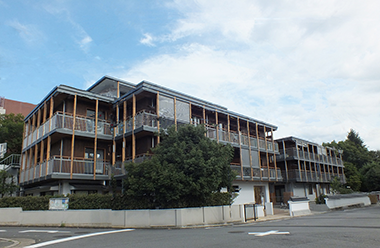 ▲The First Residential College (Koshibo) and the Second Residential College (Sentetsubo)
▲The First Residential College (Koshibo) and the Second Residential College (Sentetsubo) 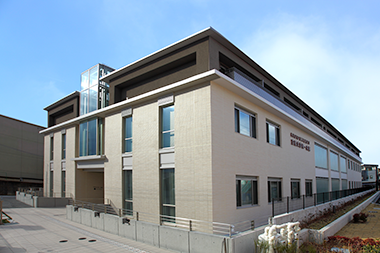 ▲Higashi Ichijokan
▲Higashi Ichijokan
Interactive education and research through dialogue is the tradition of Kyoto University. To implement this tradition, the Graduate School of Advanced Integrated Studies in Human Survivability (Shishu-Kan) has its own student house. It is a place where students can concentrate on their studies, interact with other students, and attend special lectures and discussions on leadership (jukugi). Once the students enter the student house , they spend five years living together in a community consisting of students from different cultures and different fields of study, and through interaction and exchange of dialogue, they accumulate knowledge from each other. The student house consists of three facilities in the Kyoto University Yoshida Campus. The First Residential College (Koshibo) and the Second Residential College (Sentetsubo) are located near the Faculty of Medicine Campus, and the third facility is on the third floor of Higashi Ichijokan. Students can experience , as a part of their daily life, the arts and traditions that have been cultivated in and inherited by Kyoto, the cultural center of Japan.
Multiple Supervisor System
To learn the fundamentals of various fields and the methodology of practical problem-solving from a broad perspective, a Multiple Supervisor System is adopted with the cooperation of the faculty members of other department’s research institutes in Kyoto University. When a student is admitted, a supervisor is allocated from the full-time faculty members of the Shishu-Kan, taking into consideration the student’s aspirations and specialized areas of study. In consultation with this supervisor, the need for another research supervisor in a specific field from other departments is considered. Furthermore, at Shishu-Kan, there are several trans-disciplinary composite research groups that deal with diverse social issues. Students can participate in multiple research groups depending on their interests and can gain a wide range of learning through exchange with various researchers and students from different disciplines, in addition to their supervisor. Please see <here> for composite research groups.
Service Learning
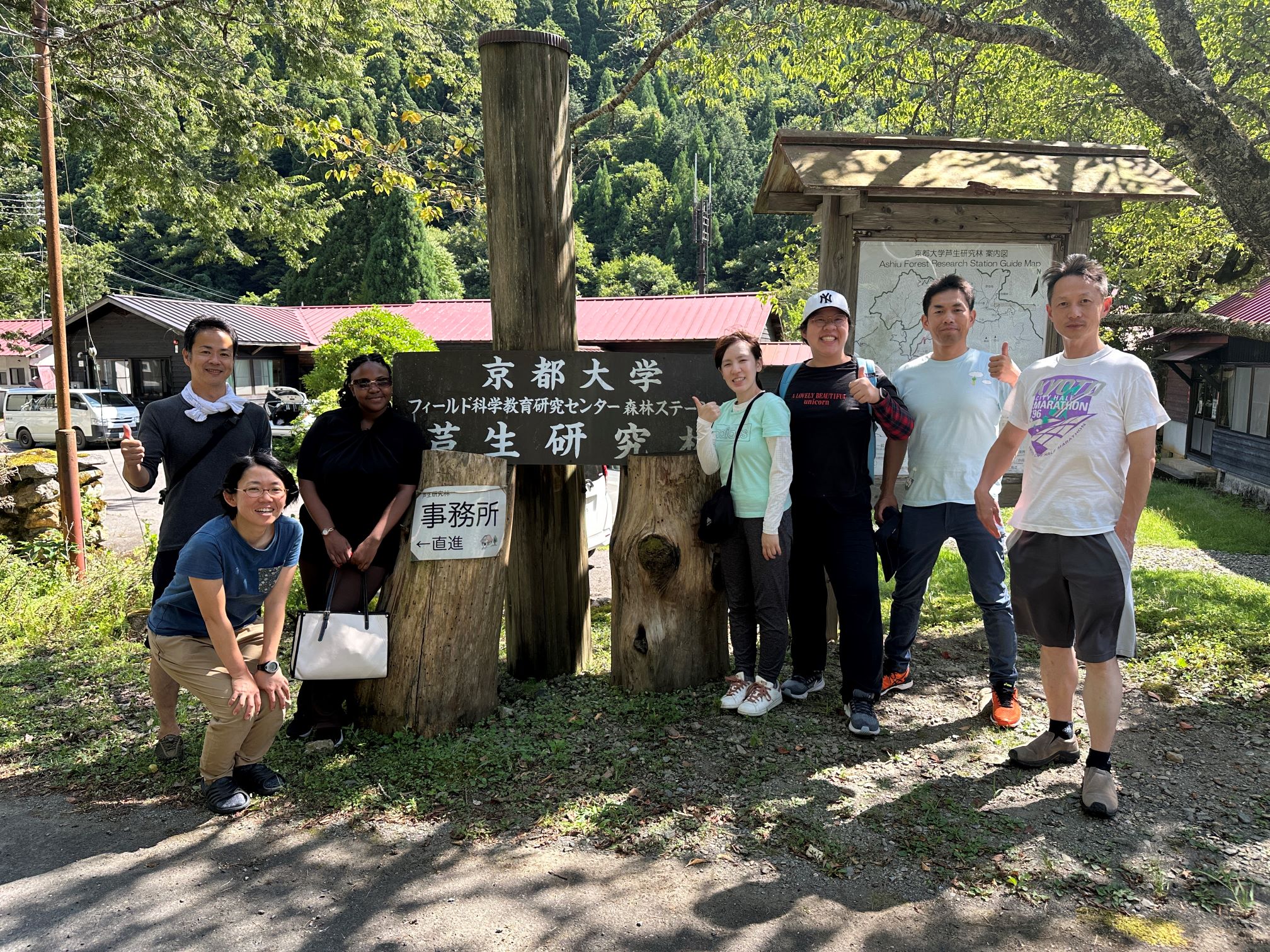
Ashiu Research Forest Station in Miyama-cho
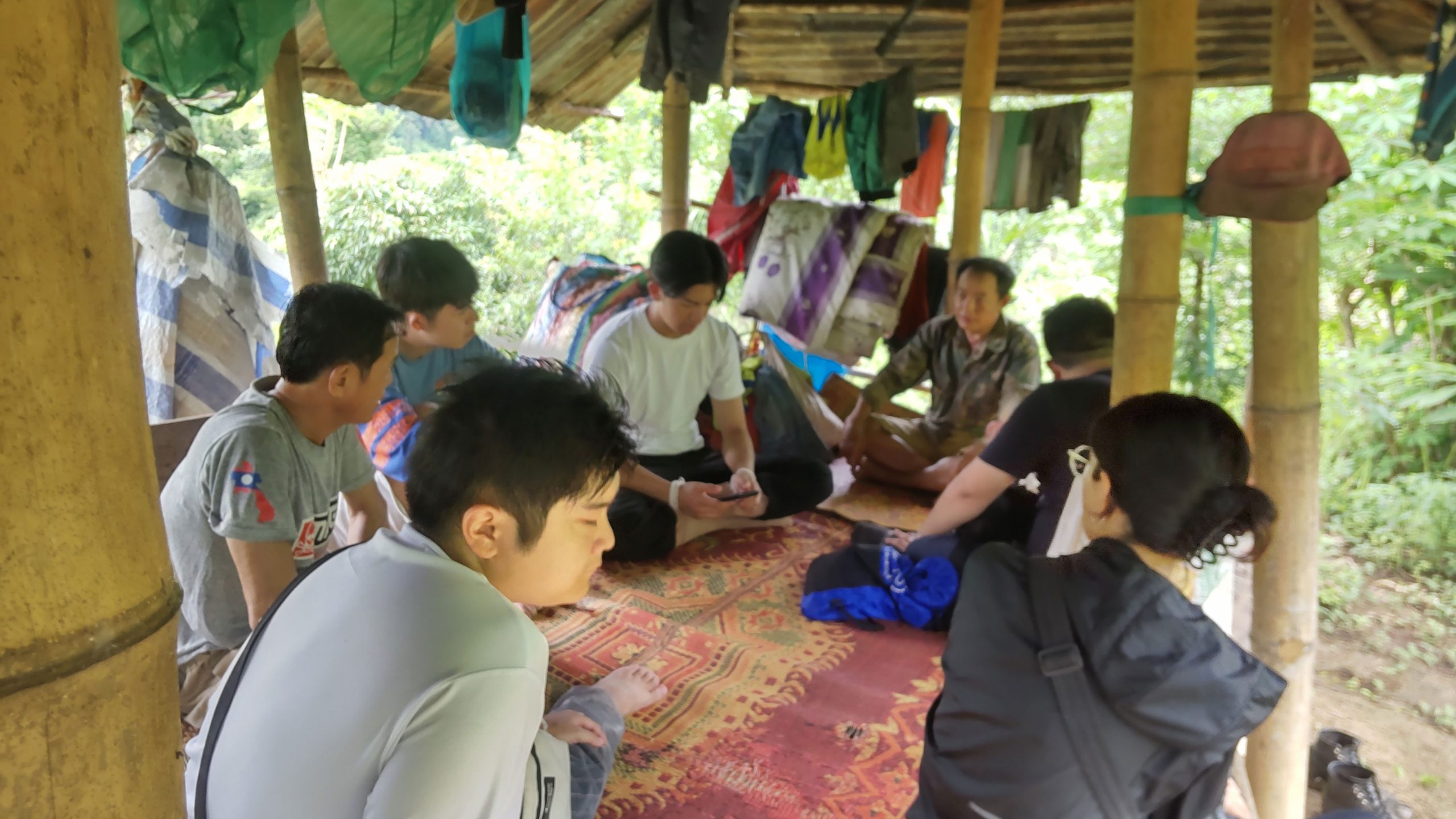
Field research in the village in Laos
All the students complete service learning during the first two years. Service learning is conducted with the cooperation of external institutions such as welfare facilities. The aim of service learning is to nurture a mindset for leaders with moral, compassion, and responsibility through practical learning in the local community. Most of the students take service learning conducted with partner institutions in and around Kyoto.
In FY2023, the program is scheduled to be conducted at a long-term care facility in Kyoto city, Ashiu Research Forest Station in Miyama-cho, and Laos.
あ
あ
あ
あ
あ
あ
あ
あ
Jukugi
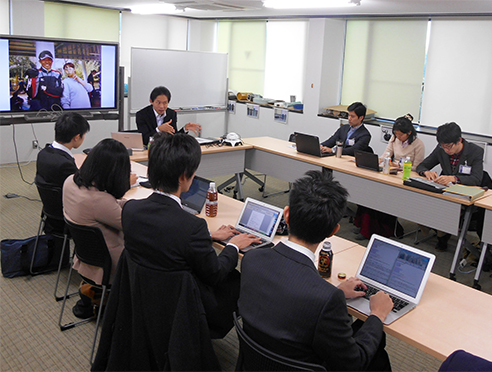
Jukugi is a series of seminars held during the first and second year, in which extensive discussions are conducted with top leaders, active in various sectors of society. Through deliberation on various global issues, a profound awareness and in-depth pursuit of issues is nurtured. External lecturers are invited from international institutions, government agencies, corporations, and NGOs as specially appointed faculty of the Graduate School of Advanced Integrated Studies in Human Survivability. Please see <here> for lecturers in charge of jukugi.
General Foundation Courses (Hasshi)
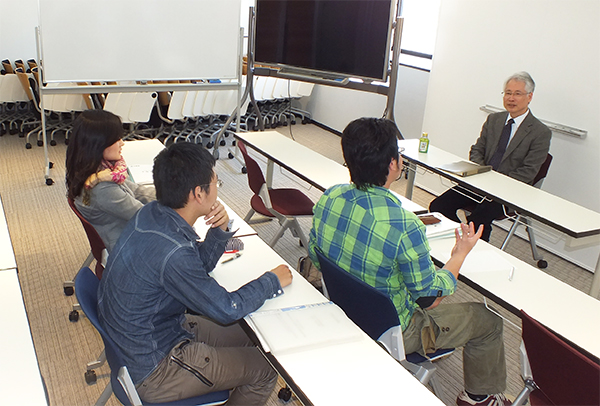
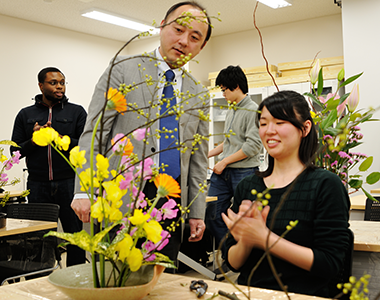
The General Foundation Courses are composed of eight fields of study, called hasshi (eight thoughts). This supports a thorough perspective on various fields of study and the ability to integrate them, as well as fosters the foundations for working in international and intercultural circumstances. Hasshi consists of the fields of; humanities and philosophy, economics and management, law and politics, language, science and engineering, medicine and life, information and environment, and art. Students enroll in lectures after discussing with their supervisors and selecting lectures from seven fields of study other than those closest to their specialized field of study.
Overseas Internship
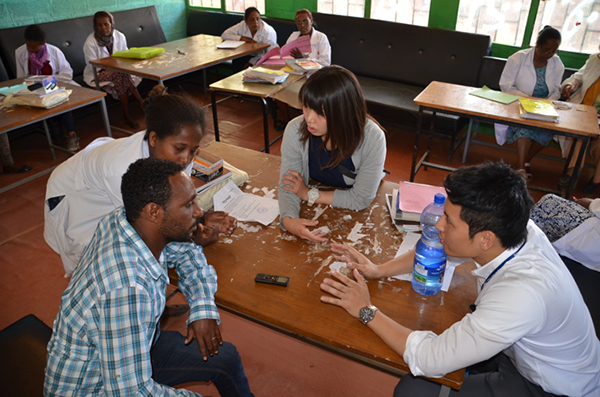 ▲UNESCO-IICBA, Ethiopia
▲UNESCO-IICBA, Ethiopia 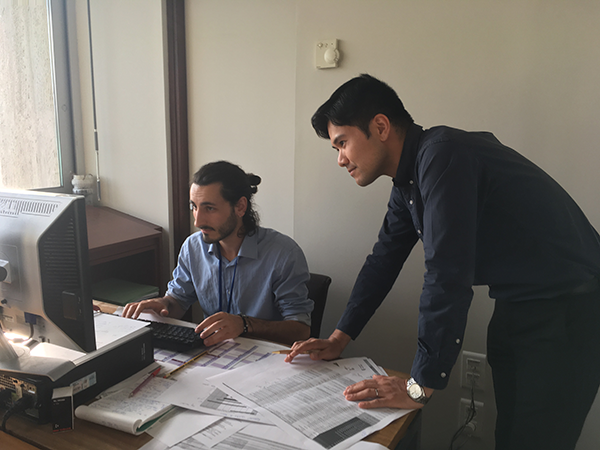 ▲UNESCO, France
▲UNESCO, France 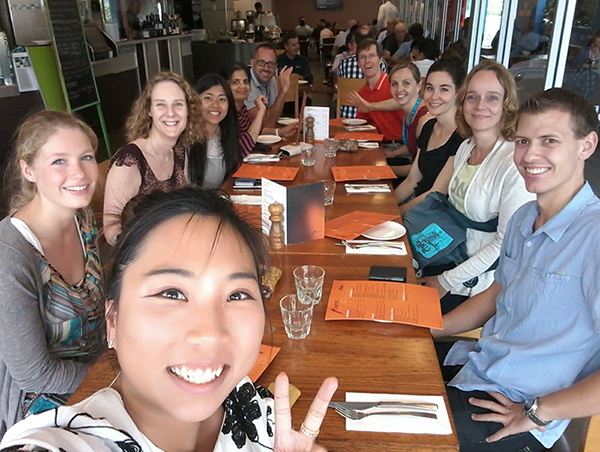 ▲Commonwealth Scientific and Industrial Research Organisation(CSIRO), Australia
▲Commonwealth Scientific and Industrial Research Organisation(CSIRO), Australia
An international practical education is imposed in the third and fifth year, in the form of an “overseas internship” to acquire knowledge and experience that can be effectively used in areas where social problems arise. The aim is to promote students awareness and knowledge of global issues, a sense of responsibility, practical skills, and leadership in an actual filed. Each student is required to find institutions for their overseas internship, in accordance with their interests, and negotiate for an internship, with support from their supervisors and Shishu-Kan. The supervisors also maintain frequent contact during the internship through email and internet conferencing and, if required, make visits to provide guidance. Students are encouraged to obtain funding for the internship on their own, but in case it is not obtained, the university can also assists with travel expenses and certain expenses necessary for their stay. Examples of previous destinations include international organizations such as the United Nations, IEA, and OECD as well as companies and NGOs. In principle, the internship must be conducted in an overseas institution, but internships within Japan may also be approved for the non-Japanese students.
Project-Based Research
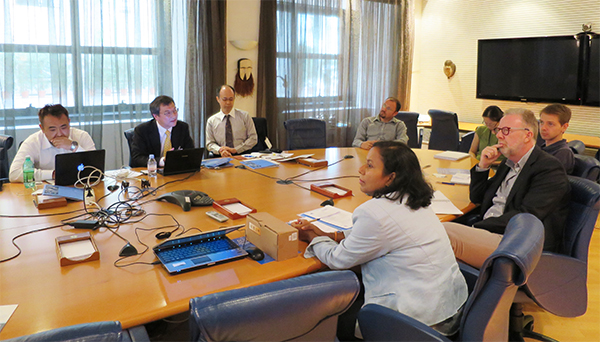
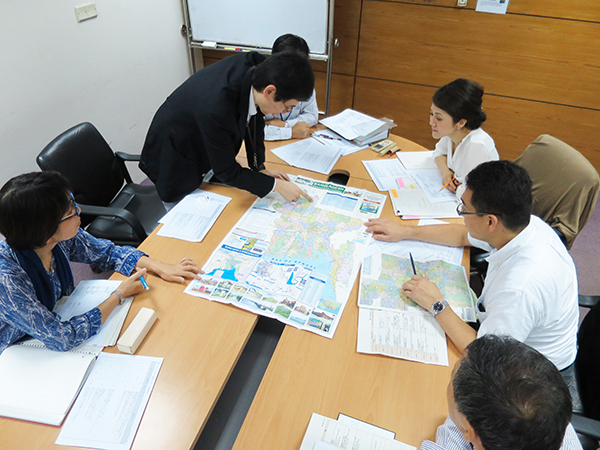
Project-based research (PBR) is the final compilation of the five years of research and course work. Each student makes their own project plan to implement their research in society by involving collaborators from industrial and governmental sectors. The aim of PBR is to experience the whole process of problem-solving in actual situations and thus acquire the ability to plan and execute, negotiate, and integrate a variety of knowledge. During PBR, students independently demonstrate leadership and work together with their collaborators to raise necessary funding, procure personnel to execute tasks, coordinate with various related parties, and conduct legal and managerial work. The results of PBR are incorporated into doctoral dissertations as an important part of study in the Graduate School of Advanced Integrated Studies in Human Survivability, in which the importance of social implementation is emphasized.
International Training Seminar
Distinguished guest speakers actively involved in the United Nations, international organizations, and governmental agencies are invited to give seminars in light of their own experiences. The purpose of this study is to foster the student’s understanding and acquisition of the knowledge and network necessary to build a global career.
| 2023.09.29 | “The world’s compounded crises and international cooperation today” JICA senior vice-president Naoki ANDO |
Info |
| 2023.07.21 | “Future Space Exploration and Japanese Contribution” Garvey McIntosh Inami Noriaki |
Info |
| 2023.05.26 | “Cooperation on Climate Security between Europe and Asia” Dr Florian Krampe Director of SIPRI’s Climate Change and Risk Programme |
Info |
| 2022.09.30 | “Inger Anderson Special Lecture (Executive Director, United Nations Environment Programme)” Inger Anderson, Executive Director, United Nations Environment Programme Inger Andersen is Under-Secretary-General of the United Nations and Executive Director of the United Nations Environment Programme, headquartered in Nairobi, Kenya. |
Info Report |
| 2022.06.18 | “The Role of EBRD in a Challenging World” Jürgen Rigterink, First Vice President “Information about talent acquisition” “Introduction of EBRD and career path” |
Info |
| 2022.05.17 | “Developing Science-Policy-Society Interface and Dynamic Capabilities for SDGs, Pandemic and Security” Prof. Tateo ARIMOTO Visiting Professor, National Graduate Institute for Policy Studies (GRIPS) Principal Fellow, Center for Research and Development Strategy, Japan Science and Technology Agency (JST-CRDS) Chief Research Fellow, International Institute for Advanced Studies (IIAS) |
Info |
| 2021.12.18 | “Gender Equality, Climate Change, and Future of Asia” Prof. Yoriko KAWAGUCHI Visiting Professor, Musashino University Former Minister for Foreign Affairs/Minister of the Environment/Special Adviser to the Prime Minister responsible for foreign affairs |
Info |
| 2021.12.07 | “Science-Policy-Society Interface for SDGs and Pandemics in the Changing World” Prof. Tateo ARIMOTO Visiting Professor, National Graduate Institute for Policy Studies (GRIPS) Principal Fellow, Center for Research and Development Strategy, Japan Science and Technology Agency (JST-CRDS) Chief Research Fellow, International Institute for Advanced Studies (IIAS) |
Info |
| 2021.11.17 | “How are we Coping with Global Issues? – Cases for Climate Change, COVID-19 and others” Mr. Kenichi SUGANUMA Sustainability Advisor Former Ambassador of Japan for Climate Change Negotiations Former Ambassador of Japan to Sri Lanka |
Info |
| 2021.07.05 | “Leadership, What COVID has Revealed” Mr. Satoru MURASE New York Lawyer Partner, Mayer Brown Law Firm Board of Trustees, United States-Japan Foundation |
Info |
| 2021.01.15 |
“Promoting Social Welfare through Alternative Dispute Resolution” Prof. James Claxton Rikkyo University Law School as Professor of Law, Independent arbitrator and mediator |
Info |
| 2020.12.21 |
“EBRD’s outline, coronavirus Solidarity Package and requested talent and resources” Mr. Hitoshi Sanada, Director, Head of Representative Office in Tokyo European Bank for Reconstruction and Development (EBRD) |
Info |
| 2020.10.29 |
“World Fit for Children: UNICEF’s role and action” Mr. Yasumasa KIMURA, Director, UNICEF Tokyo Office |
Info |
| 2020.01.14 | Sustainable Development through Investment Treaties Prof. James Claxton,Rikkyo University Law School as Professor of Law Independent arbitrator and mediator | Info |
| 2019.10.25 | Working For A Global Corporation Leadership Behaviors And Skills Needed For Success Wes Hom, Stanford University’s Graduate school of Business, Former IBM Vice President | |
| 2019.10.3 | Japanese Development Cooperation in a Changing World Izumi Ohno, Director, JICA Research Institute | Report |
| 2019.7.30 | “EBRD’s outline, expanding activities and requested talent and resources” Sir Suma Chakrabarti, President of the European Bank for Reconstruction and Development (EBRD) | Info Report |
| 2019.7.17 | “ILO as your course, The Centenary -1919・2019- TBD” Akiko TAGUCHI, Director, ILO Office for Japan | Report |
| 2019.3.29 | ”SDG Target 4.7: Education for Sustainable Development and Global Citizenship” Yoko Mochizuki, UNESCO MGIEP, Head of Programme, Rethinking Policy | Info |
| 2019.1.15 | ”OECD: Better policies for better lives” Ms. NICOLA EHLERMANN, Head of MENA-OECD Competitiveness Programme, Middle East and North Africa Division, Global Relations Secretariat | Info |
| 2019.1.8 | ”Ministry of Foreign Affairs JPO system and employment to international organizations (TBD)” Makoto HONDA, Director, Recruitment Center for International Organizations, Ministry of Foreign Affairs of Japan | Info |
| 2018.12.3 | ”Global Displacement and UNHCR―Job Opportunities at UN/UNHCR―” Dirk Hebecker, UNHCR Representative in Japan | Info |
| 2017.12.18 | ”SDGs : Future We Want” Tetsuo Kondo (Director, UNDP Representation Office in Tokyo) | Info |
| 2017.11.20 | ”地球規模の複合的課題解決に挑む! ~世界の自然環境保全にかかるキャリア構築とは~” Wildlife Conservation Societyコンゴ共和国支部 自然環境保全技術顧問 西原 智昭 氏 | |
| 2017.10.16 | ”国際機関でのキャリア構築について~希望するポストを得るために~” 在ジュネーブ人材コンサルタント 小島晶子氏 (国連、ITU、UNHCR、OECD人事関連部署について勤務) | |
| 2017.2.23 | ”International Financial Institutions: Mandate, Reality, Jobs, and Future” Mr. Masaru Honma, Director, Chief Representative of EBRD Representative Office in Tokyo | |
| 2016.12.6 | ”How to become a global leader -working for international organizations-” Ms. Kaori Miyamoto, Senior Policy Analyst, OECD | |
| 2016.10.6 | ”Population issues and Role of United Nations” Ms. Junko Sazaki, Director, United Nations Population Fund | |
| 2016.7.1 | ”East Asia economic integration and roles of ERIA -History and Challenges-” Mr. Hidetoshi Nishimura, Executive Director, Economic Research Institute for ASEAN and East Asia (ERIA) | |
| 2015.10.6 | ”The bright sides and the other sides of being a global leader” Mr. Kiyotaka Akasaka, President, Foreign Press Center/Japan | |
| 2015.8.7 | ”Career Opportunities in International Organizations” Mr. Satoshi Abe, Chief, Recruitment Center for International Organizations, Foreign Policy Bureau, Ministry of Foreign Affairs | |
| 2015.5.27 | ”Career paths for being active global leaders” Mr. Makoto Miyasako, Head of Strategy and Business Analysis Group, Human Resource Management, OECD | |
| 2014.10.10 | ”CLEAN, AFFORDABLE ENERGY FOR ALL: Some Fundamental Issues in Tackling a Complex, Integrated Challenge” Gwythian PRINS, Professor | Poster |
| 2014.6.13 | ”Mandate and Employment Opportunities” 国際連合食糧農業機関(FAO) 日本事務所 所長 チャールズ・ボリコ 氏 | |
| 2014.5.21 | ”Achieving Resilience in a Time of Change: UNDP’s Work in the Arab World” Dr. Sima Sami Bahous, Assistant Administrator and Director of the UNDP Regional Bureau for Arab States | Poster |
| 2013.10.28 | 「国連で働くこと-UNDPを事例に」 国連開発計画(UNDP) 対外関係・アドボカシー局 特別顧問 河野 毅 氏 | |
| 2013.10.3 | ”Japan in the Global Economy -Challenges for future global leaders” Bruce Stokes, Director of global economic attitudes in the Pew Research Center’s Global Attitudes Project | Poster |
| 2013.8.1 | 「大使の目からみたバングラデシュの現状ーバングラデシュ出発に先立ち学生たちへのエールー」 在バングラデシュ日本国大使館 特命全権大使 佐渡島 志郎 氏 |


